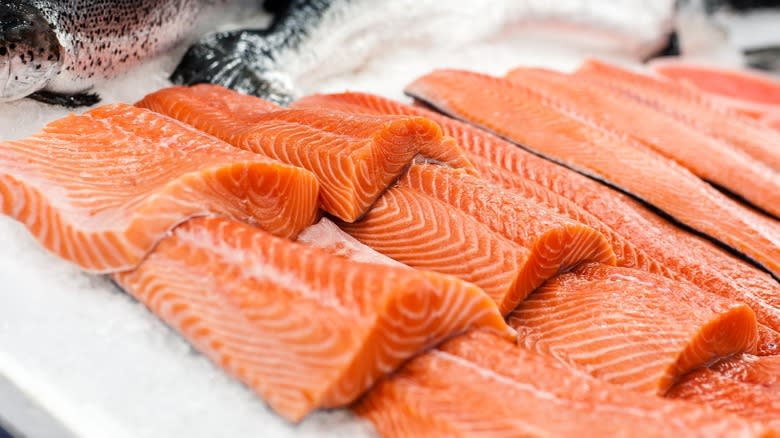Eric Ripert's Most Urgent Advice When Shopping For Seafood

We may receive a commission on purchases made from links.
Eric Ripert is a renowned chef, so, naturally, he's full of valuable cooking advice. In his book, "Seafood Simple: A Cookbook," Ripert shares all of his seafood-related advice, complete with a slew of recipes for you to try out that advice on.
Any conversation about cooking seafood must begin with the first step: purchasing the seafood. When it comes to this, Ripert emphasizes that there is one thing that is more important than anything else: the smell test. Ripert writes, "I cannot overstate how important it is to really lean into the power of smell to differentiate between seafood that's fresh and seafood that is past its prime."
What smell should you be looking for? Namely, if you pick up on a "fishy" odor, as contradictory as it sounds, you do not want to buy that piece of seafood. As for what constitutes a good fish smell, Ripert explains, "Fresh fish and seafood should always evoke the smell of a clean, fresh ocean breeze, or high tide as I like to describe it."
Read more: 15 Different Ways To Cook Fish
Ripert's Other Tips For Buying Seafood

While the smell test is super important, Eric Ripert's advice doesn't stop there. Ripert also encourages befriending a local (experienced) fishmonger, if at all possible. Ripert explains, "Not all seafood is treated the same in terms of handling, availability, etc. ... [so] I do recommend discussing your specific needs with your fishmonger."
It may not be possible to develop a relationship with one local fishmonger, depending on where you live, but it is good advice to start an open dialogue with whoever is selling you fish — such as whoever is working at the seafood and meat counter in a grocery store, or even the fishmonger at a seafood market. This way you can ask any questions you may have about how and when the fish was sourced. They likely have their own insight into which fish they think is the best option and so on.
Finally, Ripert has one other key tip: try to buy seafood on the same day that you are going to cook it.
Read the original article on Tasting Table.

